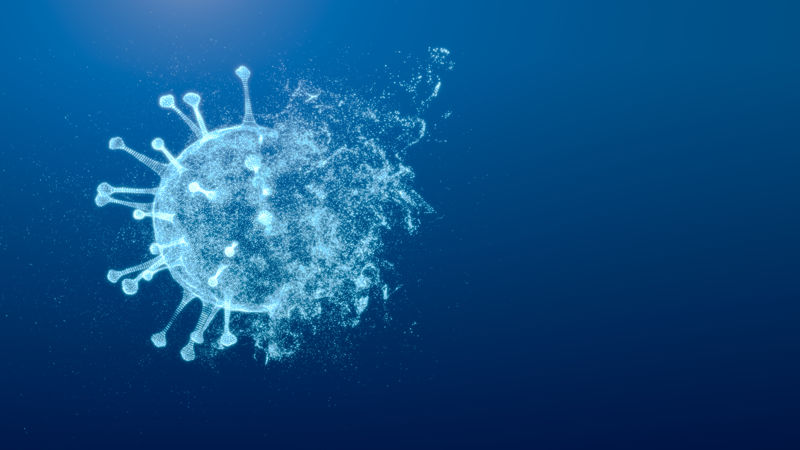How Covid made space for more kindness in the industry
Kristen Bedard-Johnson, EP at Sanctuary Content, tells us how the pandemic saw off some of the bullishness that has plagued the industry.
Here’s what I’ve learned in the last fifteen years working in production: the battle to the top of the advertising pyramid requires the human constitution of a serrated knife’s edge. It’s a fast-moving industry and not for the faint of heart.
Once you’re there, your time at the top is short-lived. You’re only as good as your last commercial.
Here’s what I’ve learned in the last three years: I’m a spoon, not a knife.
This is inconvenient for me because being aggressive in advertising is a highly rated value. Historically, there has always been a specific kind of bravado, a bold swagger that bordered on braggadocious, that is consistently rewarded and celebrated. More recently, with the pervasive loss of agency of record, this hubris morphed into something that feels more sinister. The opportunity to create trust while building a brand over time disappeared and was replaced by one-off campaigns that must be successful or else people lose their jobs. The stakes for every project are agonizingly high, understandably fueled by fear, which is usually compensated with an exertion of control. The strongest wins. And there is a very clear picture of what strength looks like.
Leadership driven by fear, shame, and withholding has been generationally handed down.
This has nothing to do with gender and everything to do with the legacy of the business. Leadership driven by fear, shame, and withholding has been generationally handed down and we adopt these traits to survive, man or woman. It’s an uninspiring cycle of “paying your dues” that affects every facet of the advertising industry. Each generation seems to take what they have endured and foists it upon the next generation.

Early in my career, I was told that I was too nice and that I needed to “grow some balls”. In an effort to belong, I attempted to craft an edge.
I bought a pair of leather leggings (embarrassingly ridiculous, I know, but also surprisingly versatile!), swilled vodka martinis, and reminded myself to not be too excited about anything except the latest Nike commercial (which was tacitly deemed acceptable). The reality is I’m just too earnest to have an aloof, emotional distance from anything. I once interviewed at a company that repeatedly referenced how “cool” they were. When I interrupted to confess that no one had ever referred to me as “cool” I was assured that it was my “maternal energy” that was needed because there were just too many cool people at the company.
Man, for a moment I thought I really had them fooled!
For some reason our industry seems to love to share stories about how horribly they have been treated by directors and production companies. These tales are shared like badges of honor. It has been suggested to me on several occasions that to be successful people must fear you. While not really my nature, this alpha persona clearly worked for other folks and so I thought it was worth a shot. In theory, it would allow me to lean into my earnestness, my arguments supported by the fact that “I just care so much!”. Unfortunately, while sometimes effective, it rarely worked out long term…not to mention the shame hangover is lousy.
Early in my career, I was told that I needed to “grow some balls”
When I started working at Sanctuary a year before the pandemic hit I was terrified I would fail. I had an amazingly supportive boss and eventual partner in Preston Lee, but I was shifting from a sales role to an executive producing role, a steep learning curve. Did I wring my hands over how we could position the company as a cool, edgy competitor? Absolutely.
Then COVID arrived. For an industry already in survival mode, this crisis brought us to our knees. Advertising is an inherently collaborative network of people and, for me, there was a very blurry line between work life and personal life. For years we were all enmeshed together on a daily basis. Our camaraderie felt like the reward for enduring the stress inherent in our jobs. Now a Zoom square was the extent of contact. It was jarring and scary.

Suddenly, worrying about how Sanctuary was positioned in the market was the last thing on our minds. We were focused on making enough money to maintain our employees’ salaries and support the needs of our directors.
Our energy was invested in brainstorming new ways to execute work and keep people safe. We learned that total transparency and honesty was the best way to ease the fear and anxiety that surrounded most of the jobs that came our way.
Our line producers served as true heroes and we made sure they knew how much we valued each of them. At some point we all decided that no matter how much we needed the money we would refuse to work with assholes because life was already stressful enough.
We unintentionally, and then very intentionally, made kindness the filter of our choices.
Some people equate kindness with weakness. I would argue that kindness requires tremendous strength. Frankly, it’s easier to be angry than kind. It’s easier to assume I’m right and everyone else is wrong. Approaching work with empathy and fairness needs enormous intention. When conflict arises, self-control and humility are imperative to pause and ask the right questions.
Kindness leads to better ideas.
Others might argue that kindness is a quick way for employees to “go soft”. But what does that even mean? Instead of endeavoring to “toughen up” what if the goal is resilience? The ability to recover quickly from failure is far more powerful than developing calluses until all feeling is gone. If there is room for criticism there must also be room for mistakes. Mistakes are not only inevitable, they are important.
On my first job as an EP at Sanctuary I made a very expensive error when I hired the wrong production designer. He came in $100K over budget. $100K! Preston’s response? “How exciting! You’ll never make that mistake again.” And then we talked about how I could approach a job like this differently in the future. Isn’t that an amazing example of generosity? He could see that I was sick with regret and that there was no benefit to punishing or shaming me. Preston trusted that my potential was worth more than my costly blunder.
Finally, and most importantly, kindness leads to better ideas. Creativity thrives in a collaborative, curious environment; it hides from fear. Originality blossoms in a culture with space for risk and failure; it withers under control.

The opposite of fear and control is trust. Take a moment to survey where trust does and does not exist for you at work. How does that benefit you? How does it get in the way? This isn’t a woo-woo exercise. It’s a decisive way to get to the best work. Isn’t that what everyone wants?
Listen, it’s not easy. I don’t always get it right. Sometimes stress gets to me and I react too quickly. I’m not sitting here on a pedestal saying I have it all figured out because I don’t. I’m suggesting it’s a worthy experiment. Kindness requires the kind of strength I aspire to every day.
Kindness and excellence can co-exist
Kindness has also been good for business. In the past few years, we won the Advertising Excellence award at AICP and we were named on Ad Age’s list of A-List Production Companies. Half of our roster was awarded a Cannes Lion last year. This year will be our most profitable yet. Our success is not the result of playing the game well. It’s the result of doing the best we can with what we have in front of us alongside people we like and respect.
Our biggest learning in the last three years is that kindness and excellence can co-exist. It has brought us tremendous growth and joy. Before the pandemic, this kind of public earnestness might have gotten me kicked out of advertising. But we’re entering a new era and our collective learning from the last three years should inform how we navigate the future.
Here’s to more spoons.








